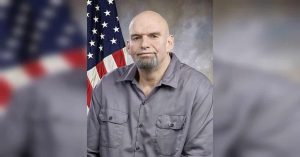Supreme Court Allows Williams Execution to Move Forward
On Tuesday, the Supreme Court allowed the execution of Marcellus Williams to move forward.
This took place even though family members of the victim in the case wanted to see the sentence commuted to life.
Additionally, some procedural questions were up in the air, leading to massive protests against the court allowing the execution to move forward.
Was Justice Served?
That is the question everyone is asking today, so let’s do a quick review of this case.
Williams, of course, has maintained his innocence throughout the case and its proceedings.
He had been convicted in 2001 for the murder of reporter Felicia Gayle in 1998.
She was stabbed 43 times, and the murder weapon was left lodged in her neck.
The current prosecutor in St. Louis County does not stand behind the conviction, believing there were numerous errors in the case, including the handling of the evidence, which also showed DNA evidence from one of the prosecutors who had handled the knife without gloves.
There is also the question of a juror allegedly being struck from the pool because he was black, which would go against Supreme Court precedent. When the attorney was asked if the juror was struck because he was black, the attorney stated, “No, absolutely not.”
The state wrote in court filings, “He struck this potential juror in part because he thought Williams and this potential juror looked similar, but not because he was black.”
Then-Missouri Gov. Eric Greitens (R) paused the initial execution to allow for evidence to be re-examined to prove his innocence. When Governor Parson took over, he disbanded the board and set an execution date. Both governors are Republicans.
Williams’ defense team’s emergency stay request to the Supreme Court stated, “The ever-present undercurrent of residual doubt as to Mr. Williams’ innocence plagues this case, even as his execution looms. Mr. Williams’ conviction and death sentence were secured through a trial riddled with constitutional errors, racism, and bad faith, much of which only came to light recently.”
Once the execution cleared the State Supreme Court, Governor Parson stated, “Mr. Williams has exhausted due process and every judicial avenue, including over 15 hearings attempting to argue his innocence and overturn his conviction.
“No jury nor court, including at the trial, appellate, and Supreme Court levels, have ever found merit in Mr. Williams’ innocence claims. At the end of the day, his guilty verdict and sentence of capital punishment were upheld.”
The Supreme Court agreed along ideological lines, ruling 6-3 that the execution could move forward.
The Midwest Innocence Project called the execution, a “horrifying injustice” that reveals “systemic problems bigger than even Mr. Williams’ case.”
This case will surely be used as election fodder, but it does appear that Williams has been given years to prove his innocence, and that clearly never took place.




